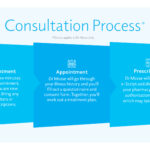Excessive noise is not only disruptive but also has the potential to inflict permanent damage by harming the delicate hearing mechanism in the inner ear.
Workers most affected by a noisy work environment are those in industries and job roles where exposure to high noise levels is common. These include construction workers, manufacturing employees, miners, agricultural workers, industrial maintenance personnel, and transportation drivers.
How much noise is too much noise?
Loud noises, especially those exceeding 85 decibels (dB), can damage the sensitive hair cells in your inner ear. These cells are crucial for transmitting sound signals to your brain. Prolonged exposure to high noise levels can lead to noise-induced hearing loss, a permanent and irreversible condition. The gradual loss of hearing can affect your quality of life and productivity, both at work and in your personal life.
Recognising the signs of hearing damage
The top five signs that your hearing may be affected or that you could be experiencing hearing loss include:
- Difficulty understanding conversations: Struggling to follow or participate in conversations, especially in noisy or crowded settings.
- Frequent requests for repetition: Frequently asking people to repeat themselves or speak more loudly.
- Tinnitus: Experiencing ringing, buzzing or hissing sounds in your ears when there is no external source of the noise.
- Increasing the volume: Needing to increase the volume on the television, radio, or electronic devices to hear clearly, and receiving comments from others that it’s too loud.
- Social withdrawal: Avoiding social gatherings, parties or meetings because of difficulty in hearing and understanding what’s being said and experiencing social isolation.
Protecting your hearing at work
- Use hearing protection: If your workplace is noisy, your employer should provide hearing protection. Make sure to wear them consistently.
- Take breaks: Whenever possible, step away from loud areas from short breaks to give your ears a rest.
- Limit personal exposure: Be mindful of your exposure to loud noises outside of work too. Activities with high volume can further contribute to hearing damage. For instance, use hearing protection when mowing the lawn, using the chainsaw or at a concert.
Audiometric Testing
Regular audiometric testing can help identify any hearing loss early on. This testing is often required in certain industries and is a proactive step towards preserving your hearing.
Your hearing is a valuable asset and it’s essential to take steps to protect it, especially if you work in a noisy environment. It is also important to note that the NSW government has approved the commencement of Clause 58 – Audiometric Testing under the Work Health and Safety (WHS) Regulation from 1 January 2024.
Therefore, businesses that require workers to frequently use hearing protection as a control measure for noise that exceeds the exposure standard will have to provide hearing tests. For new workers, a baseline hearing test must be completed within three months of commencing their employment. The worker must then get a follow-up monitoring hearing test at least every two years during their employment.
Making an appointment
Our Workplace Health Services Team can assist with hearing test appointments. For enquiries and/or to book an appointment please call 02 8865 0633 or email workplacehealth@chmc.com.au






